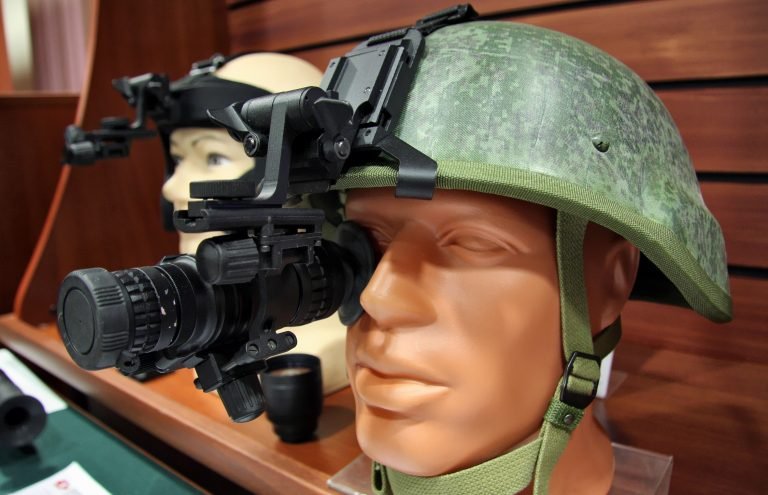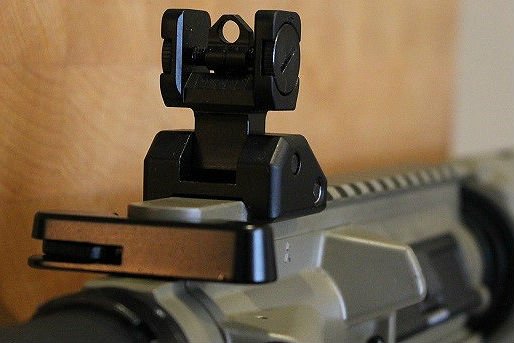Understanding firearm calibers isn’t optional—it’s essential for safe, effective shooting and optimal firearm performance. Whether you’re new to firearms or looking to expand your knowledge, grasping the fundamentals of calibers and ammunition selection will make you a more informed shooter.
At ICB Firearms, we’ve helped countless Michigan shooters navigate ammunition choices since 2019. We believe that education leads to better decisions, safer shooting, and more enjoyable experiences.
This guide covers everything from basic caliber definitions to choosing the right ammunition for your specific needs. You’ll understand how caliber affects performance, which ammunition types work best for different purposes, and how to make smart buying decisions.

What Is a Firearm Caliber?
Caliber refers to the internal diameter of a firearm’s barrel and the corresponding diameter of the bullets it fires. It’s typically measured in either inches (like .45 ACP) or millimeters (like 9mm). However, caliber encompasses more than simple bullet diameter—it also includes the cartridge case dimensions and overall cartridge length.
The complete cartridge designation tells you important performance characteristics. For example, .223 Remington and 5.56×45mm NATO have nearly identical bullet diameters but different case specifications and pressure ratings. These differences can significantly impact safety and performance.
Shotguns use “gauge,” which indicates how many lead balls of that bore diameter would weigh one pound. A 12-gauge shotgun has a larger bore diameter than a 20-gauge because it would take fewer 12-gauge-sized balls to reach one pound.
Caliber directly affects recoil, accuracy, stopping power, and ammunition cost. Larger calibers generally produce more recoil and energy but may sacrifice magazine capacity and shootability.
Common Firearm Calibers and Their Uses
Handgun Calibers
9mm remains the most popular handgun caliber worldwide, offering excellent balance of power, manageable recoil, and high magazine capacity. It’s ideal for self-defense, law enforcement, and target shooting.
.40 S&W delivers more energy than 9mm but with increased recoil. Popular among law enforcement, it offers good stopping power for defensive applications, though additional recoil can slow follow-up shots.
.45 ACP has been trusted for over a century, known for large, heavy bullets and substantial stopping power. While magazine capacity is lower than 9mm, many shooters appreciate its effectiveness and manageable recoil.
.380 ACP serves as an excellent option for smaller concealed carry pistols. While less powerful, quality defensive ammunition makes it effective for personal protection in compact firearms.
Rifle Calibers
.223 Remington/5.56×45mm NATO offers excellent accuracy with relatively low recoil, perfect for target shooting, varmint hunting, and home defense. Lightweight bullets achieve high velocities and flat trajectories.
.308 Winchester provides exceptional accuracy and stopping power for hunting medium to large game. It’s also popular for long-range target shooting and offers excellent versatility across different bullet weights.
7.62×39mm balances power and manageable recoil, commonly used in popular rifle platforms. It offers good performance for hunting and defensive applications at moderate ranges.
Shotgun Gauges
12 gauge delivers maximum power and versatility, suitable for everything from home defense to waterfowl hunting. The wide variety of available ammunition types makes it incredibly adaptable.
20 gauge provides substantial power with less recoil than 12 gauge, making it excellent for younger or smaller-framed shooters. It’s particularly effective for upland bird hunting and home defense.
Factors to Consider When Choosing Ammo
Purpose and Application
Your intended use should drive ammunition selection. Self-defense requires expanding bullets that transfer maximum energy while minimizing over-penetration. Hunting demands bullets designed for clean, ethical kills. Target shooting benefits from consistent, accurate ammunition that’s cost-effective for high-volume use.
Recoil and Shootability
Recoil affects your ability to shoot accurately and comfortably. Lighter bullets generally produce less recoil, while heavier bullets often deliver more energy but increase felt recoil. Your physical build, shooting experience, and firearm weight all influence how recoil affects performance.
Availability and Cost
Ammunition availability varies significantly by caliber and market conditions. Popular calibers like 9mm, .223, and 12 gauge typically offer the best availability and pricing due to high production volumes. Less common calibers may cost more and be harder to find.
Budget for regular practice—shooting skills deteriorate without consistent training. Choose calibers where you can afford to shoot regularly rather than powerful options that price you out of practice sessions.
Manufacturer Recommendations
Always consult your firearm’s manual for approved ammunition specifications. Using ammunition outside manufacturer recommendations can damage your firearm, void warranties, and create safety hazards. Quality matters more than price when it comes to defensive ammunition.
Understanding Ammo Types and Bullet Designs
Full Metal Jacket (FMJ) bullets feature a lead core covered by a copper or brass jacket. They’re designed to penetrate without expanding, making them ideal for target practice. FMJ ammunition typically costs less than specialized bullets.
Hollow Point (HP) bullets feature a cavity in the tip designed to expand upon impact, creating larger wound channels and transferring more energy to the target. They’re preferred for self-defense and hunting applications.
Soft Point (SP) bullets combine some penetration characteristics of FMJ with controlled expansion similar to hollow points. They’re popular for hunting because they provide good penetration while still expanding for effective energy transfer.
Specialty rounds include tracer rounds for visibility, frangible bullets that disintegrate upon impact with hard surfaces, and various other specialized designs. These typically have specific applications and may face legal restrictions.
Safety and Legal Considerations
Never assume ammunition compatibility based on appearance alone. Always verify that ammunition matches your firearm’s chamber markings exactly. Using incorrect ammunition can cause catastrophic firearm failure, serious injury, or death.
Research local and state laws regarding ammunition purchases, possession, and use. Some jurisdictions restrict certain bullet types or require background checks for ammunition purchases.
Store ammunition in cool, dry conditions away from heat sources and out of reach of unauthorized users. Properly stored ammunition can remain viable for decades, while poor storage conditions cause deterioration and unreliable performance.
Tips for First-Time Ammo Buyers
Start with ammunition recommended by your firearm’s manufacturer. This ensures compatibility and optimal performance while you’re learning your firearm’s characteristics.
Buy small quantities of different brands and bullet weights initially to determine what performs best in your specific firearm. Every firearm has preferences, and what works well in one gun may not be ideal in another.
Keep detailed records of different ammunition performance, including accuracy, reliability, and any feeding issues. This information becomes valuable when purchasing larger quantities.
Consult with knowledgeable professionals who can provide guidance based on your specific needs and experience level. Quality retailers invest time in education because informed customers make better decisions.
Conclusion
Understanding firearm calibers and ammunition selection directly impacts your shooting safety, performance, and enjoyment. This knowledge helps you make informed decisions that match your needs and budget.
Take time to research and understand your specific requirements before making ammunition purchases. Consider your intended use, experience level, and firearm specifications when selecting ammunition.

Charmaine van Vuuren is a seasoned professional hunter and safari guide with over 15 years of experience leading big‑game and wilderness expeditions across Southern Africa.
Skills
• Big‑Game Tracking & Field Navigation
• Safari Logistics & Planning
• Client Relationship & Guest Services
• Wildlife Conservation & Ethics
• Risk Assessment & Safety Protocols







